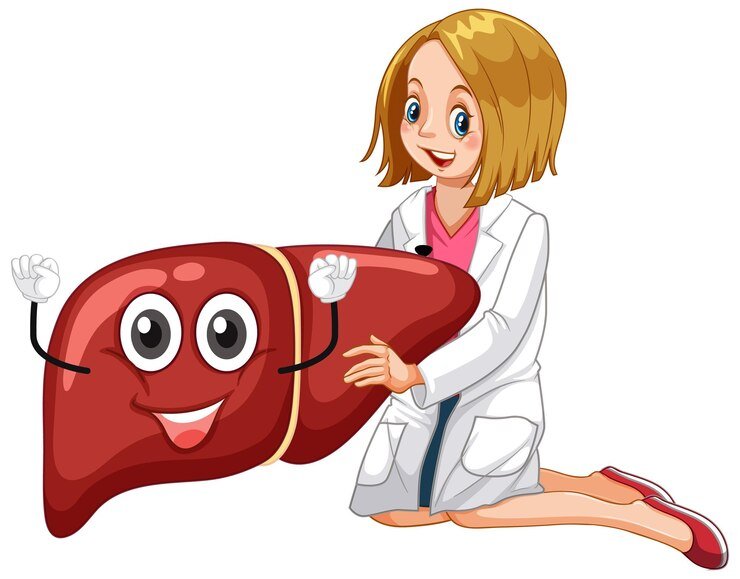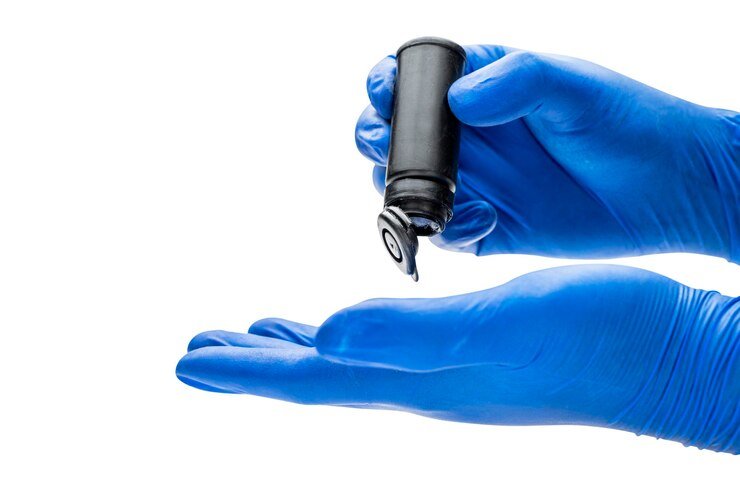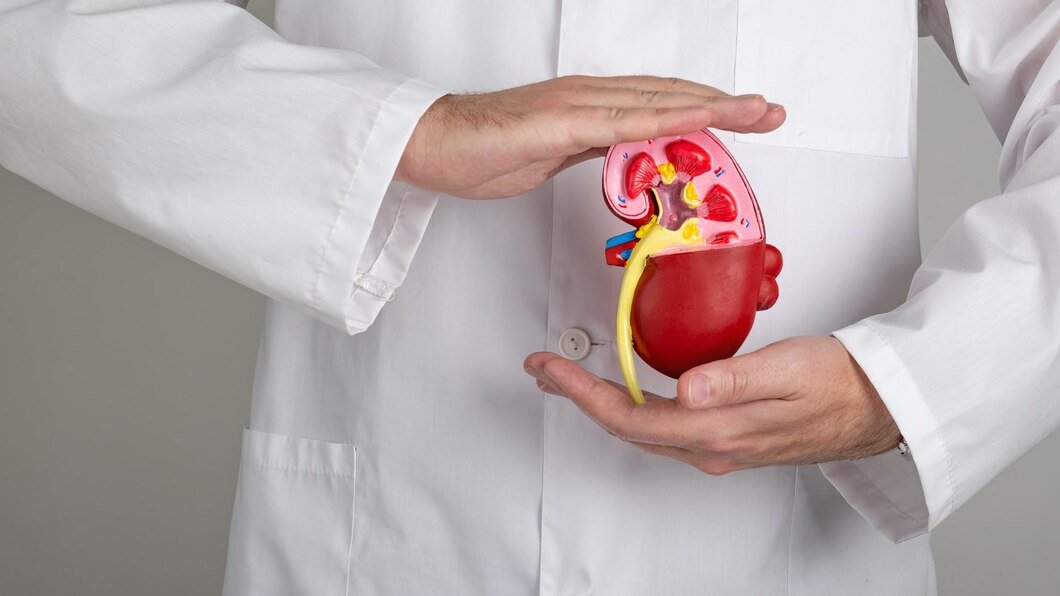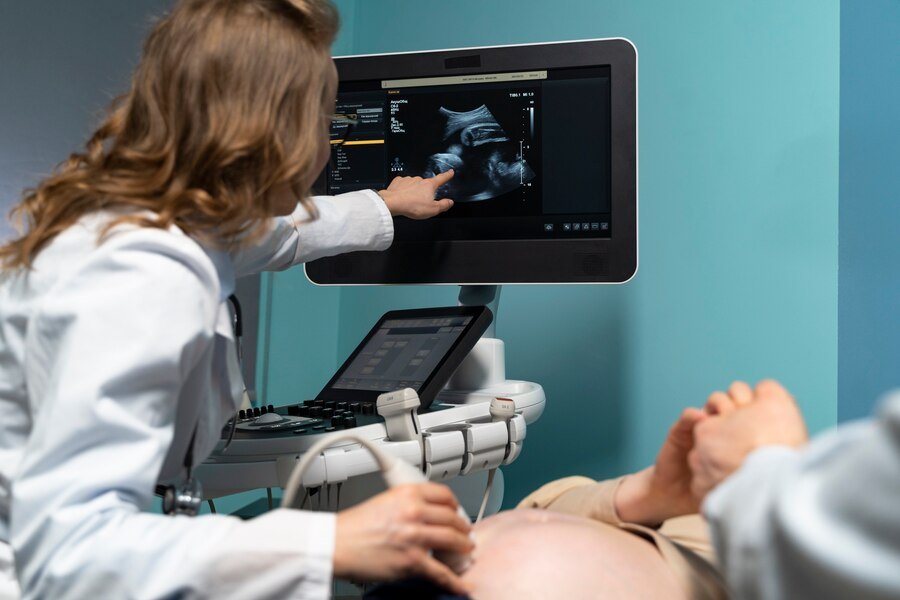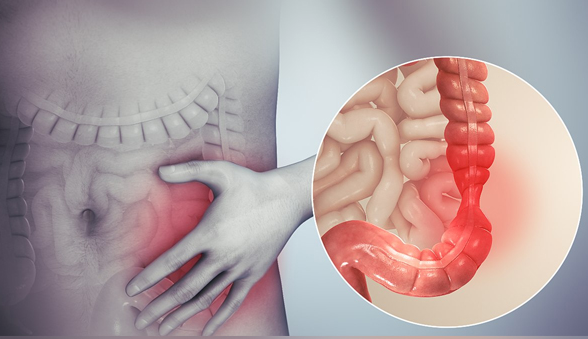The liver, one of the body’s most vital organs, plays a crucial role in filtering toxins, metabolizing nutrients, and regulating various bodily functions. However, liver diseases such as hepatitis, fatty liver disease, and cirrhosis pose significant health risks and can lead to serious complications if left untreated. Until recently, diagnosing liver conditions often required invasive procedures like liver biopsy, which can be uncomfortable and carry potential risks. However, the advent of FibroScan has transformed the landscape of liver health assessment, offering a non-invasive, reliable, and efficient alternative.Best Gastroenterologist in Rohini. To Know More About it Please Click Here FibroScan, developed by Echosens, represents a breakthrough in liver health diagnostics. It utilizes a technology called transient elastography to assess liver fibrosis and steatosis, two key indicators of liver disease. Liver fibrosis refers to the scarring of liver tissue, while steatosis refers to the accumulation of fat within liver cells. Both conditions can indicate the presence of liver damage and the progression of liver disease. FibroScan works by emitting low-frequency ultrasound waves through the liver, measuring the speed at which these waves propagate through liver tissue. This measurement provides valuable information about the stiffness of the liver, which correlates with the degree of fibrosis. Additionally, FibroScan assesses liver fat content using a parameter called controlled attenuation parameter (CAP), providing a comprehensive evaluation of liver health. To Know More About It Please Click Here In conclusion FibroScan has emerged as a revolutionary tool in the field of liver health assessment, offering a non-invasive, accurate, and efficient alternative to traditional diagnostic methods such as liver biopsy. Its ability to assess liver fibrosis and steatosis quickly and reliably has transformed the way healthcare providers diagnose and manage liver disease. With its practical benefits, including ease of use, rapid results, and suitability for monitoring disease progression, FibroScan has become an invaluable asset in the fight against liver-related ailments. By facilitating early detection, intervention, and monitoring, FibroScan has the potential to improve patient outcomes and reduce the burden of liver disease on individuals and healthcare systems worldwide. As research and technology continue to advance, FibroScan’s role in liver health assessment is likely to become even more prominent, offering hope for a future where liver disease can be detected and managed with greater precision and effectiveness.Best Gastroenterologist in Rohini.
Exploring the Wonders of Capsule Endoscopy: A Revolutionary Diagnostic Tool.
In the realm of medical diagnostics, technology continues to push boundaries, offering innovative solutions that enhance patient care and improve outcomes. One such breakthrough is capsule endoscopy, a minimally invasive procedure that allows physicians to visualize the gastrointestinal (GI) tract with unprecedented clarity and detail. From detecting obscure bleeding to diagnosing inflammatory bowel disease, capsule endoscopy has revolutionized the way we investigate and treat gastrointestinal conditions. To Know More About It Please Click Here What is Capsule Endoscopy? Capsule endoscopy involves swallowing a small, pill-sized capsule containing a tiny camera, light source, battery, and transmitter. As the capsule travels through the digestive system, it captures high-definition images of the GI tract’s lining. These images are transmitted wirelessly to a recording device worn by the patient, which is later analyzed by a healthcare professional. The Procedure Indications and Applications Capsule endoscopy is used to diagnose and evaluate various gastrointestinal conditions, including: Advantages of Capsule Endoscopy: To Know More About It Please Click Here Limitations and Considerations While capsule endoscopy offers numerous benefits, it also has some limitations and considerations:
A Beginner’s Guide to Enteroscopy: What You Need to Know.
eginner’s Guide to Enteroscopy: What You Need to Know Enteroscopy is a medical procedure used to examine and treat conditions of the small intestine, which is not easily accessible through traditional endoscopy or colonoscopy. If you or someone you know is scheduled for an enteroscopy, understanding the basics can help alleviate anxiety and prepare for the procedure. Here’s what you need to know.Best Gastroenterologist in Rohini. To know More About it Please Click Here 1. What is Enteroscopy? Enteroscopy is a minimally invasive procedure that allows doctors to visualize the small intestine using a flexible tube called an enteroscope. This thin, flexible tube is equipped with a camera and a light at its tip, allowing the physician to examine the intestinal lining in detail. 2. Types of Enteroscopy There are two main types of enteroscopy: 3. Why is Enteroscopy Performed? Enteroscopy is typically performed to: 4. Preparation for Enteroscopy Your doctor will provide specific instructions on how to prepare for the procedure. This may include fasting for a certain period, discontinuing certain medications, and cleansing the bowel using laxatives or enemas. 5. What to Expect During the Procedure 6. After the Procedure Best Gastroenterologist in Rohini. 7. Risks and Complications While enteroscopy is considered safe, like any medical procedure, it carries some risks, including bleeding, perforation of the intestinal wall, or adverse reactions to sedation. However, these complications are rare. 8. When to Call Your Doctor Contact your doctor if you experience severe abdominal pain, persistent bleeding, fever, or any other unusual symptoms after the procedure. To know More About it Please Click Here 9. Conclusion Enteroscopy is a valuable tool for diagnosing and treating conditions of the small intestine. By understanding the basics of the procedure and what to expect, you can approach it with confidence and ease any concerns you may have. Remember to follow your doctor’s instructions closely for a successful and safe enteroscopy experience.Best Gastroenterologist in Rohini.
Unlocking the Secrets: The Mysterious World of Capsule Endoscopy.
In the realm of modern medicine, advancements often tread into the territory of the extraordinary. Among these marvels lies capsule endoscopy, a revolutionary diagnostic tool that unveils the mysteries of the human digestive system like never before. Within the confines of a small, ingestible capsule, lies a world of exploration, enabling physicians to delve into the depths of the gastrointestinal tract with unprecedented clarity. Best Hepatology Consultant in Rohini To Know More About It Please Click Here The Journey Begins Picture this: a tiny, pill-sized capsule journeying through the intricate pathways of the digestive system, capturing high-definition images along the way. This is the essence of capsule endoscopy, a non-invasive procedure that offers a panoramic view of the esophagus, stomach, small intestine, and even parts of the colon. Unlike traditional endoscopy, which involves the insertion of a flexible tube with a camera into the body, capsule endoscopy offers a more comfortable and patient-friendly alternative. The Capsule’s Quest As the capsule embarks on its journey, it navigates through the labyrinthine passages of the digestive tract, propelled forward by peristalsis—the involuntary muscle contractions that facilitate movement. Equipped with a miniature camera, light source, and transmitter, the capsule captures thousands of images as it travels through the gastrointestinal terrain. These images provide valuable insights into the lining of the digestive organs, allowing physicians to detect abnormalities such as ulcers, inflammation, bleeding, and tumors. Best Hepatology Consultant in Rohini Illuminating Discoveries One of the most significant advantages of capsule endoscopy lies in its ability to visualize areas of the gastrointestinal tract that were previously inaccessible or challenging to reach. In particular, the small intestine, a segment notoriously elusive to traditional endoscopic techniques, becomes an open book under the scrutiny of the capsule. Conditions such as Crohn’s disease, obscure gastrointestinal bleeding, and small bowel tumors can now be diagnosed with greater precision, leading to more effective treatment strategies. The Patient Experience For patients undergoing capsule endoscopy, the procedure offers several advantages over conventional methods. Unlike traditional endoscopy, which may cause discomfort, gagging, or sedation-related side effects, capsule endoscopy is typically well-tolerated and minimally invasive. Patients can go about their daily activities while the capsule silently performs its task, transmitting data to a recorder worn on a belt or harness. Once the journey is complete, usually within 8 to 12 hours, the capsule is naturally expelled from the body. Limitations and Future Directions While capsule endoscopy represents a remarkable leap forward in gastrointestinal imaging, it is not without its limitations. The inability to control the capsule’s movement or retrieve it in case of malfunction remains a challenge. Moreover, interpretation of the vast amount of data generated by capsule endoscopy requires expertise and time. However, ongoing research aims to address these limitations by enhancing capsule technology, improving image analysis algorithms, and expanding its applications to other areas of medicine. To Know More About It Please Click Here Conclusion In the realm of diagnostic medicine, capsule endoscopy stands as a testament to human ingenuity and technological innovation. By offering a non-invasive, comprehensive view of the gastrointestinal tract, it has revolutionized the way we diagnose and treat a myriad of digestive disorders. As technology continues to evolve and our understanding of the human body deepens, the secrets unlocked by capsule endoscopy will continue to illuminate the path toward better health and well-being. Best Hepatology Consultant in Rohini
Stomach Health And Nutrition: Best Foods For Digestion
A well-functioning stomach is crucial for overall health and well-being. It plays a vital role in the digestive process, breaking down food and absorbing nutrients essential for bodily functions. While genetics and environmental factors influence stomach health, nutrition plays a significant role in maintaining optimal digestive function. In this article, we’ll explore the best foods for promoting stomach health and supporting smooth digestion.Best Gastroenterologist in Rohini To Know More About It Please Click Here Fiber-Rich Foods Fiber is essential for maintaining a healthy digestive system, and it plays a key role in regulating bowel movements and preventing constipation. Incorporating fiber-rich foods such as fruits, vegetables, whole grains, and legumes into your diet can promote stomach health by adding bulk to stool and facilitating its passage through the digestive tract. Aim to include a variety of fiber sources in your meals to ensure adequate intake. Probiotic-Rich Foods Probiotics are beneficial bacteria that support gut health by maintaining a balanced microbiome. Consuming probiotic-rich foods such as yogurt, kefir, sauerkraut, kimchi, and kombucha can help populate the gut with healthy bacteria, promoting digestion and reducing the risk of digestive disorders such as bloating, gas, and diarrhea. Including these foods in your diet regularly can support a healthy stomach environment. Lean Protein Sources Protein is essential for muscle growth, repair, and overall health, but not all protein sources are created equal when it comes to stomach health. Opt for lean protein sources such as poultry, fish, tofu, beans, and lentils, which are easier to digest compared to fatty cuts of meat and processed meats. Incorporating lean protein into your meals can provide essential nutrients without putting excessive strain on your digestive system. High-Water Content Foods Staying hydrated is essential for maintaining optimal digestion, as water helps soften stool and facilitate its movement through the digestive tract. Consuming high-water-content foods such as cucumbers, watermelon, oranges, strawberries, and leafy greens can contribute to your daily fluid intake while providing essential vitamins, minerals, and antioxidants. Including these hydrating foods in your diet can support healthy digestion and overall well-being.Best Gastroenterologist in Rohini Ginger and Peppermint Ginger and peppermint are herbs known for their digestive benefits, including alleviating nausea, indigestion, and stomach discomfort. Incorporating ginger into your meals or consuming ginger tea can help soothe the stomach and promote digestion. Similarly, drinking peppermint tea or chewing on peppermint leaves can aid in relieving digestive symptoms and promoting overall stomach health. Whole, Unprocessed Foods Processed foods high in sugar, unhealthy fats, and artificial additives can disrupt stomach health and contribute to digestive issues such as bloating, gas, and discomfort. Opting for whole, unprocessed foods such as fruits, vegetables, whole grains, nuts, seeds, and lean proteins can provide essential nutrients while supporting optimal digestion. These nutrient-dense foods are easier for the stomach to break down and absorb, promoting overall digestive health. Conclusion Maintaining stomach health is essential for overall well-being, and nutrition plays a significant role in supporting optimal digestion. Best Gastroenterologist in Rohini By incorporating fiber-rich foods, probiotic-rich foods, lean protein sources, high-water content foods, ginger, peppermint, and whole, unprocessed foods into your diet, you can promote a healthy stomach environment and reduce the risk of digestive disorders. Remember to listen to your body’s cues, stay hydrated, and make mindful food choices to nourish your gut and support optimal digestion.
Advancements In Endoscopic Imaging Technology
In the realm of modern medicine, endoscopy has revolutionized the way clinicians diagnose and treat a myriad of medical conditions. Best Gastroenterologist in Rohini, The ability to visualize internal organs and structures without invasive surgery has been a game-changer in improving patient outcomes and reducing recovery times. Central to the success of endoscopy is the continuous evolution of imaging technology, which has seen remarkable advancements in recent years. To Know More About It Please Click Here Introduction to Endoscopic Imaging Endoscopic imaging involves the use of specialized instruments equipped with cameras and lights to visualize the interior of the body. These instruments, known as endoscopes, are inserted into natural openings or small incisions in the body, allowing physicians to examine organs such as the gastrointestinal tract, respiratory system, and urinary tract with precision and clarity. Traditionally, endoscopic imaging relied on basic optical systems that provided limited visual information. However, rapid technological advancements have led to the development of sophisticated imaging modalities that offer enhanced clarity, resolution, and diagnostic capabilities. Advancements in Endoscopic Imaging Technology Clinical Implications and Future Directions The continuous evolution of endoscopic imaging technology holds immense promise for improving patient care across various medical specialties. Enhanced visualization capabilities enable earlier detection of lesions, more accurate diagnosis of diseases, and precise guidance for therapeutic interventions. Looking ahead, future advancements in endoscopic imaging technology are likely to focus on further improving image resolution, expanding the range of accessible anatomical sites, and integrating artificial intelligence algorithms for real-time image analysis and decision support. In conclusion The field of endoscopic imaging technology has witnessed remarkable progress, driven by innovation and collaboration between clinicians, engineers, and researchers. Best Gastroenterologist in Rohini These advancements not only enhance the diagnostic and therapeutic capabilities of endoscopy but also pave the way for personalized and minimally invasive approaches to healthcare delivery. As endoscopic imaging technology continues to evolve, its transformative impact on medicine is poised to grow, offering new avenues for improving patient outcomes and advancing the practice of modern healthcare.
Understanding Colonoscopy: A Comprehensive Guide to Screening and Prevention.
Colonoscopy is a crucial medical procedure that plays a pivotal role in the early detection and prevention of colorectal cancer, one of the leading causes of cancer-related deaths worldwide. While the thought of undergoing a colonoscopy may evoke feelings of apprehension for some, understanding the importance of this screening tool and its potential life-saving benefits is essential. In this article, we will explore what a colonoscopy entails, why it is recommended, how to prepare for the procedure, and its role in maintaining colorectal health Best Gastroenterologist in Rohini. To Know More About It Please Click Here What is a Colonoscopy A colonoscopy is a diagnostic procedure used to examine the inner lining of the large intestine (colon) and rectum using a long, flexible tube called a colonoscope. Equipped with a tiny camera and light source, the colonoscope allows the gastroenterologist to visualize the entire colon, identify abnormalities, and perform biopsies or remove polyps if necessary. Why is Colonoscopy Recommended? Best Gastroenterologist in Rohini. Colonoscopy is primarily recommended for colorectal cancer screening and prevention. Colorectal cancer often develops from precancerous growths called polyps, which can be detected and removed during a colonoscopy before they have the chance to become cancerous. Additionally, colonoscopy can detect early-stage colorectal cancer when it is most treatable, leading to better outcomes and higher survival rates. In addition to screening for colorectal cancer, colonoscopy may be recommended for investigating symptoms such as rectal bleeding, changes in bowel habits, abdominal pain, and unexplained weight loss. It can help diagnose conditions such as inflammatory bowel disease (IBD), Crohn’s disease, ulcerative colitis, and colorectal polyps or tumors.Best Gastroenterologist in Rohini. Preparing for a Colonoscopy Proper preparation is essential for a successful colonoscopy. Your healthcare provider will provide detailed instructions on how to prepare, which typically involves a clear liquid diet for 1-3 days before the procedure and taking laxatives or bowel-cleansing agents to empty the colon. During the Procedure On the day of the colonoscopy, you will be given sedatives and pain medications to ensure comfort and relaxation during the procedure. The colonoscope is gently inserted into the rectum and guided through the colon while the gastroenterologist carefully examines the lining for abnormalities. If polyps are found, they may be removed or biopsied for further evaluation. After the Procedure: Following the colonoscopy, you will be monitored in a recovery area until the sedatives wear off. You may experience some bloating, gas, or mild discomfort, but these symptoms typically resolve within a few hours. It is essential to arrange for someone to drive you home after the procedure, as the sedatives can impair your ability to drive safely. Role in Prevention and Early Detection Colonoscopy is considered the gold standard for colorectal cancer screening due to its ability to detect and prevent the disease at an early stage. By identifying and removing precancerous polyps during the procedure, colonoscopy significantly reduces the risk of developing colorectal cancer and saves lives. Routine screening with colonoscopy is recommended for average-risk individuals starting at age 45 or earlier if there are risk factors such as a family history of colorectal cancer or certain genetic conditions. Depending on the findings, follow-up colonoscopies may be recommended every 5-10 years. To Know More About It Please Click Here Conclusion Colonoscopy is a vital tool in the prevention and early detection of colorectal cancer, offering a safe and effective means of screening for the disease. While the procedure may seem daunting, its potential life-saving benefits far outweigh any temporary discomfort or inconvenience. By understanding the importance of colonoscopy and following recommended screening guidelines, individuals can take proactive steps to protect their colorectal health and reduce their risk of colorectal cancer.Best Gastroenterologist in Rohini.

